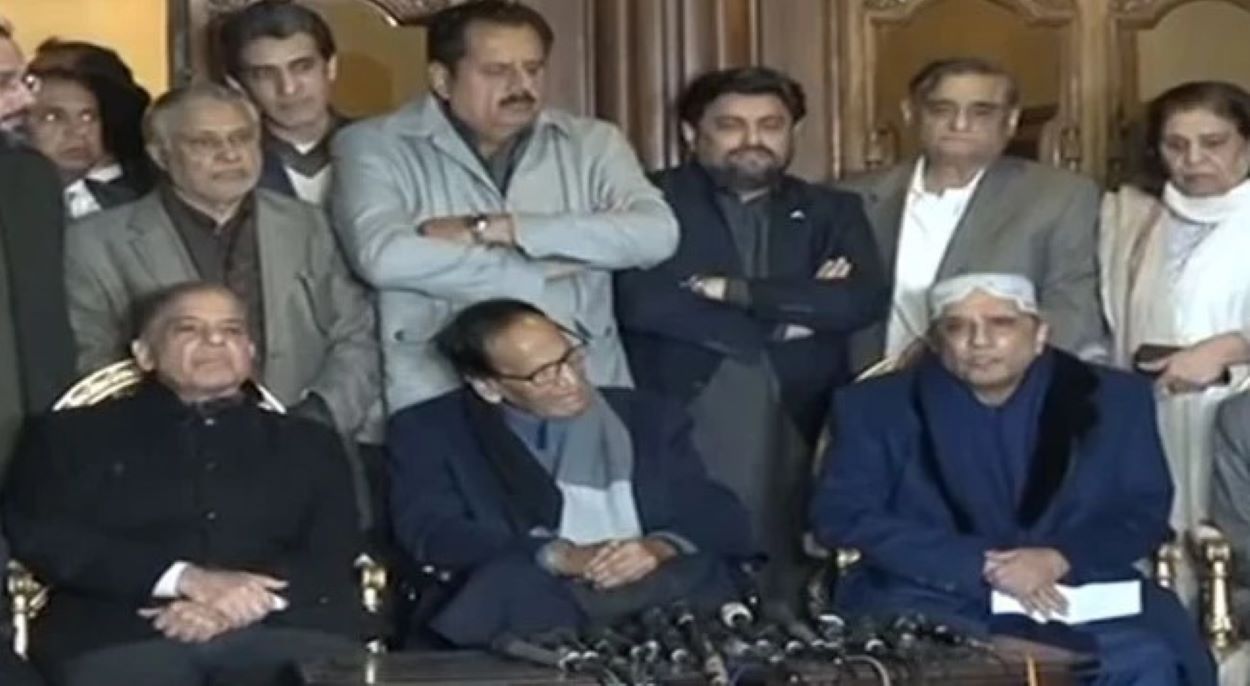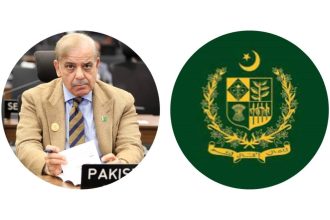Asif Ali Zardari, Co-Chairman of the Pakistan Peoples Party (PPP), invited the Pakistan Tehreek-e-Insaf (PTI), founded by Imran Khan, to participate in a political reconciliation initiative.
During a press conference attended by leaders from multiple parties in Islamabad on Tuesday, Zardari, accompanied by figures such as PML-N President Shehbaz Sharif and MQM-P Convener Dr Khalid Maqool Siddiqui, emphasized the importance of including PTI in the reconciliation efforts. He highlighted the necessity of a collective commitment to the nation’s economic agenda.
The political scene in Pakistan has been marked by uncertainty following the general elections on February 8, where no party achieved a clear majority in the National Assembly. The major political forces have been actively seeking support from independent candidates and forming alliances to secure the required majority in the parliament.
Read: PPP Declines Coalition Offer, Supports PML-N Prime Ministerial Candidate in Opposition
Zardari mentioned forming a coalition government to navigate the country’s current challenges during a meeting at the residence of PML-Q chief Chaudhry Shujaat Hussain in Islamabad.
Shehbaz Sharif, before his nomination for the prime minister’s role, called for an end to electoral hostilities and stressed unity for economic recovery. He appreciated the PPP’s support for the PML-N candidate, asserting the coalition’s substantial majority in the parliament.
PML-Q Chief Shujaat, MQM-P Convener Siddiqui, and Senate Chairman Said Sanjrani, among others, voiced their support for the economic focus and the coalition’s efforts towards stabilizing democracy.
Read: MWM Declares Unconditional Support for PTI, Imran Khan Empowered for Decision-Making
Amid these developments, PML-N leader Ahsan Iqbal expressed optimism about the PPP joining the federal cabinet, despite Bilawal Bhutto-Zardari’s earlier statement about the PPP’s non-participation in the government. Iqbal highlighted the PTI’s regional strength in Khyber Pakhtunkhwa and mentioned support for Maryam Nawaz’s leadership in Punjab.
The dialogue and consensus among these political leaders underscore the collective endeavour to form a government capable of addressing Pakistan’s pressing economic and political challenges.






